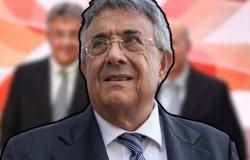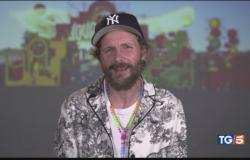Bishop and layman, this is how the Bishop Emeritus of Ivrea, Monsignor Luigi Bettazzi, defined himself. Bishop and philosopher, this is how Msgr. could be defined. Vito Angiuli, the Bishop of Ugento – Santa Maria di Leuca. Not only for his numerous publications of an exquisitely philosophical nature produced over the years (starting, in terms of relevance, from the monumental monograph Ragione moderni e storia del Gerusalemme on the Atheismus triumphatus by Tommaso Campanella), but also for his latest book “We are outside the tunnel? Written in the years of Covid and the wars in Ukraine and Palestine: pandemic, peace, Mediterranean, West (2020-2023)”, recently published by the VivereIn publishing house.
The book
If it is true that, at first glance, it seems to address exclusively social, economic, geopolitical and health issues, as one delves deeper into reading one discovers that the “glasses” with which Monsignor Angiuli approaches these issues have a lens that it is that of faith and theology, while the other is that of reason and philosophy: «Reason questions and faith answers, but it does not cancel the question and does not even make it superfluous. Indeed, it demands it” (p. 85). I believe ut intelligam, intelligo ut credem, one might say with another illustrious bishop-philosopher, Augustine of Hippo.
In the dense pages of Monsignor Angiuli, whose common thread is represented by the constant pursuit and achievement of the “difficult balance between questioning reason and assertive faith” (p. 85), the weight of philosophy is impressively relevant, as evidenced by the copious quotations of philosophers of the classical canon (Augustine, Arendt, Aristotle, Bruno, Cardano, Cusano, Deleuze, Eckhart, Heidegger, Husserl, Kant, Kierkegaard, Levinas, Lyotard, Marx, Nietzsche, Pascal Plato, Pomponazzi, Seneca, Spengler, Spinoza, Telesio , Tommaso, Vanini, Wittgenstein etc.) or contemporaries (Norberto Bobbio, Massimo Cacciari, Costantino Esposito, Sossio Giametta, Hans Jonas, Edgar Morin, Giovanni Reale etc.) who embellish the homilies, messages, articles and interventions that the volume collects.
Monsignor Angiuli uses this impressive ideal and intellectual heritage to draw also (but not only, obviously) profound philosophical lessons from the three events which, between 2020 and 2023, “shaken the whole of humanity” (p. 5) : the Covid-19 pandemic, the war between Russia and Ukraine and the conflict in Palestine. The first and perhaps most important of these lessons is «the convinced acceptance of the sense of limit and the recognition of the connatural fragility and finitude of our humanity» (p. 18), because «The awareness of fragility allows man the correct measure of himself, of his own finiteness and the understanding of the limits of others” (p. 77).
Marx said that “shame is already a revolution”. Paraphrasing him, one could argue that for Monsignor Angiuli the awareness of being fragile (from a personal point of view – i.e. physical, psychological, educational and relational -, social, environmental and institutional) is also a revolutionary political act or, in any case, it can and should have a political implication: «The awareness of being fragile helps to build a better world» (p. 77). A better world in which «calculating thought (M. Heidegger) needs to be integrated with meridian thought (A. Camus)» (p. 351), that is, with a thought that «seeks measure, or a harmonious intersection between human, divine and natural” (p. 352), overcoming the typically modern conception of the world “based on the removal of the relationship with the sacred and with nature, devoted to cold technique and nihilism” (p. 352).
The famous quip by Norberto Bobbio, mentioned several times by Monsignor Angiuli, is all too well known: «The relevant difference for me is not between believers and non-believers, but between thinking people and non-thinking people; that is, between those who reflect on the various whys and the indifferent who do not reflect. The indifferent species, which is by far the most numerous, is found both among believers and non-believers.” Here, are we out of the tunnel? it is, first of all, a book for “thinking people” and for those who are not “indifferent”.
© ALL RIGHTS RESERVED
Read the full article at
Puglia Newspaper





